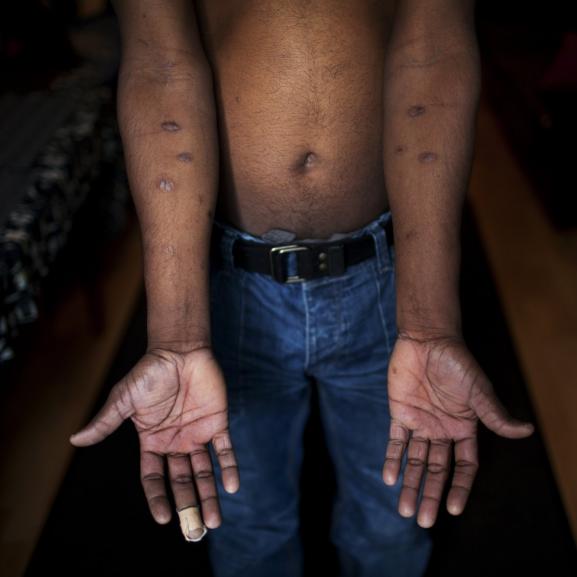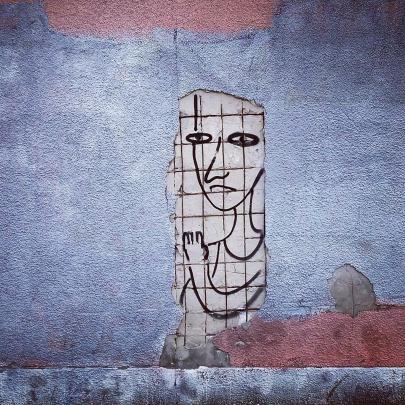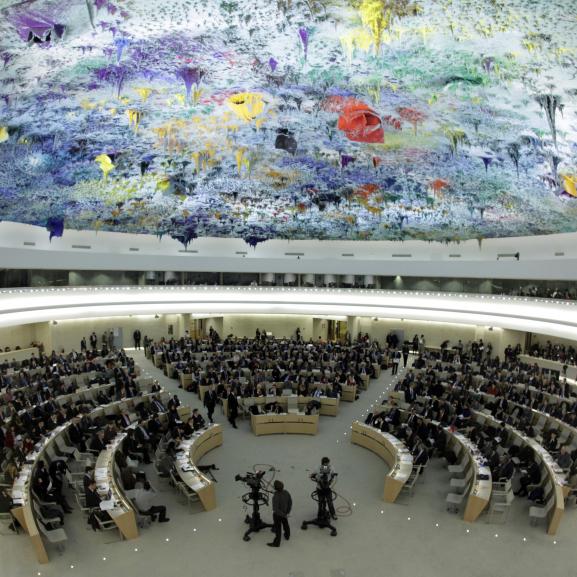Scotland's connection to police torture in Sri Lanka explained
Boris Johnson’s government is funding Police Scotland to train Sri Lankan police - a force with a record of torture and human rights abuse. Find out how you can help stop this.
What connects Boris Johnson, Police Scotland and torture in Sri Lanka?
Boris Johnson’s government is funding Police Scotland to train the Sri Lankan police force, a force with a long record of human rights abuses including torture, sexual violence and killing.
Over the 15 years in which this training has taken place, there have been no significant improvements to human rights in the country.
Instead, Sri Lankan police use Police Scotland’s training as a smokescreen for its brutality and human rights abuses, giving the illusion that it’s making improvements.
Training police forces that use torture puts Scotland’s reputation as a country that protects human rights under threat.
What is the Police Scotland Sri Lanka training?
Funded by Boris Johnson’s government in Westminster, Police Scotland have made at least 90 deployments to Sri Lanka since 2006 to train on a range of topics from community policing to gender-based violence. Senior members of the Sri Lankan police force have also visited Scotland for training .
Police Scotland’s current contract to deliver this training continues until March 2022, but this is currently on hold as a result of the global pandemic.
What human rights abuses have Sri Lankan police committed?
In January of this year, the UN issued a report on grave human rights violations in Sri Lanka, showing a pattern of deaths in custody, use of torture and killings by law enforcement officials. It described these human rights abuses as ‘longstanding and endemic’.
Since the election of Gotabaya Rajapaksa as Sri Lanka’s president in 2019, there has been increasing suppression of dissent and discrimination against Tamil and Muslim communities in Sri Lanka, as well as a reported public commitment from police to no longer prosecute cases of intimate partner violence in cases of “slight assault, abuse or threats”.
Earlier this year, the country’s State Minister of Community Police Services publicly compared the President to “a strong leader like Hitler” stating that "he would become a Hitlerif he is pushed to do so.”

How are Police Scotland connected to torture in Sri Lanka?
Police Scotland have trained officers from a number of notorious and feared Sri Lankan police units, including the Special Task Force, the Terrorism Investigation Division and the Criminal Investigation Department. All of these units have been widely implicated in serious human rights violations, including sexual violence and torture.
Isn’t this training improving policing in Sri Lanka?
There is a stark disconnect between Police Scotland’s training efforts and police practices in Sri Lanka. Over the 15 years in which the Scottish police training has taken place, there have been no significant improvements to human rights in the country.
Instead, the Sri Lankan government has used the training as a public relations exercise to deflect scrutiny of its human rights record. For example, the training provided by Police Scotland was referred to by Sri Lankan officials during a session of the United Nations Committee Against Torture in 2016, to support its denial of human rights violations in the country.
Providing this training also risks enhancing the effectiveness of a police force that targets and abuses minority groups and perceived critics of the government.

How can we stop Police Scotland delivering this training?
Police brutality and torture can never be justified. Until there are real indications of accountability for abuses by the Sri Lankan police, including investigation and prosecution of perpetrators, Police Scotland must halt any further engagement.
As a result of the global pandemic, Police Scotland’s current training programme has been paused. This training gives Sri Lanka’s abusive police force unwarranted legitimacy and undermines Scotland’s role as a champion of human rights. Now is the time to end it for good.







